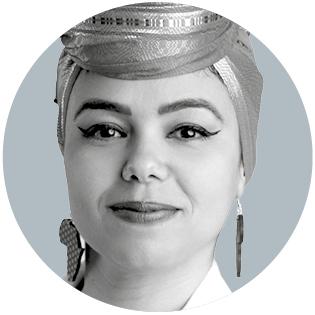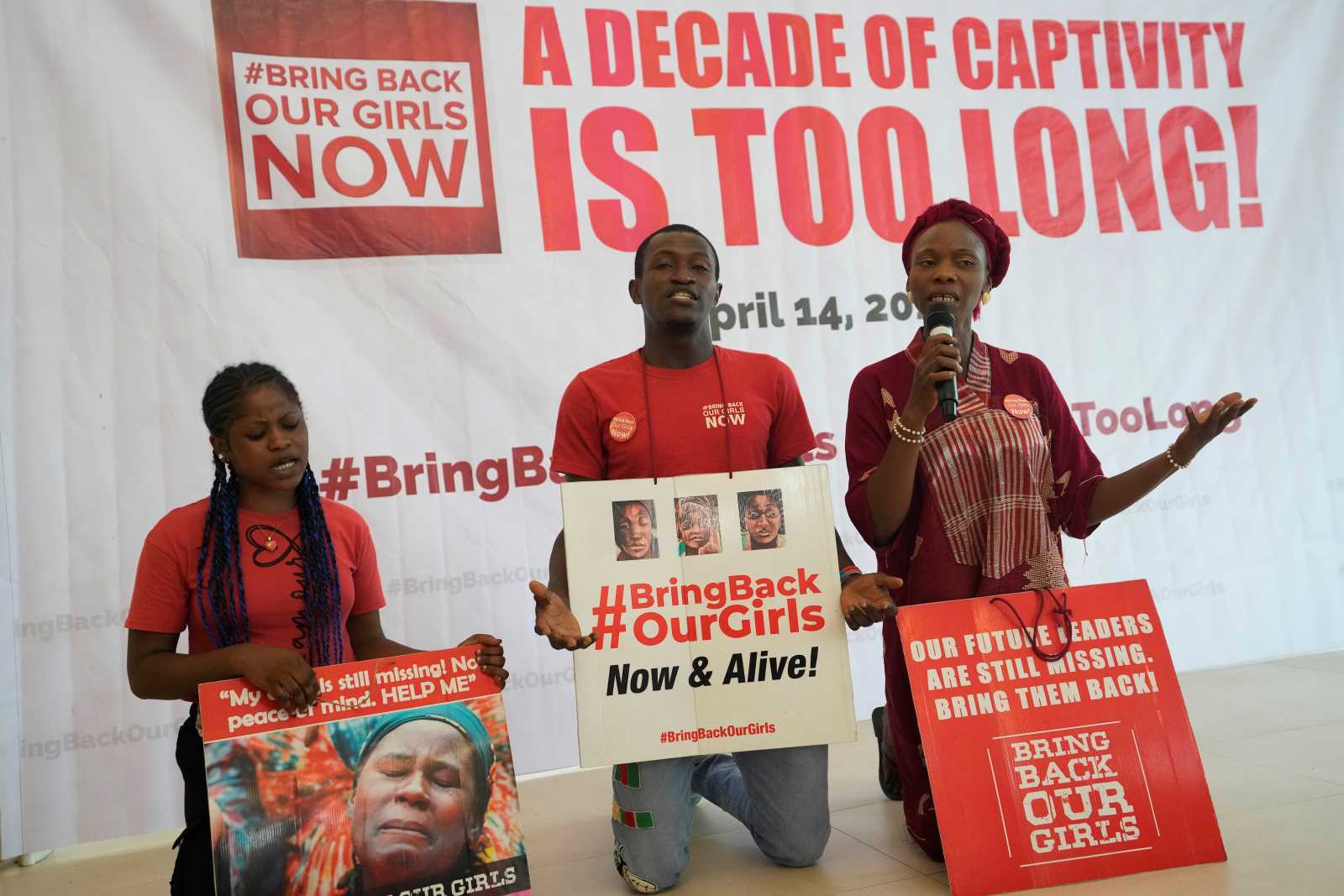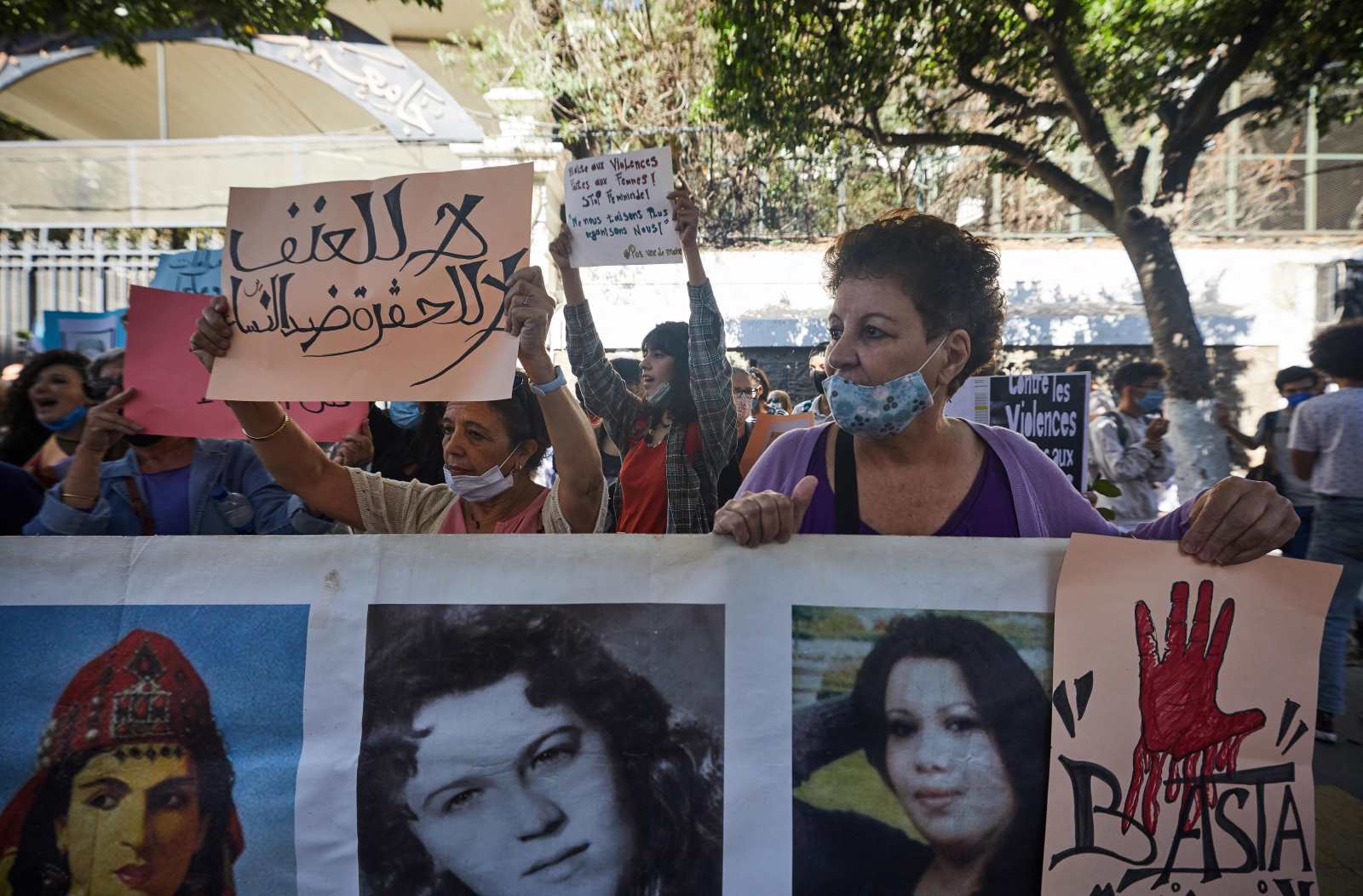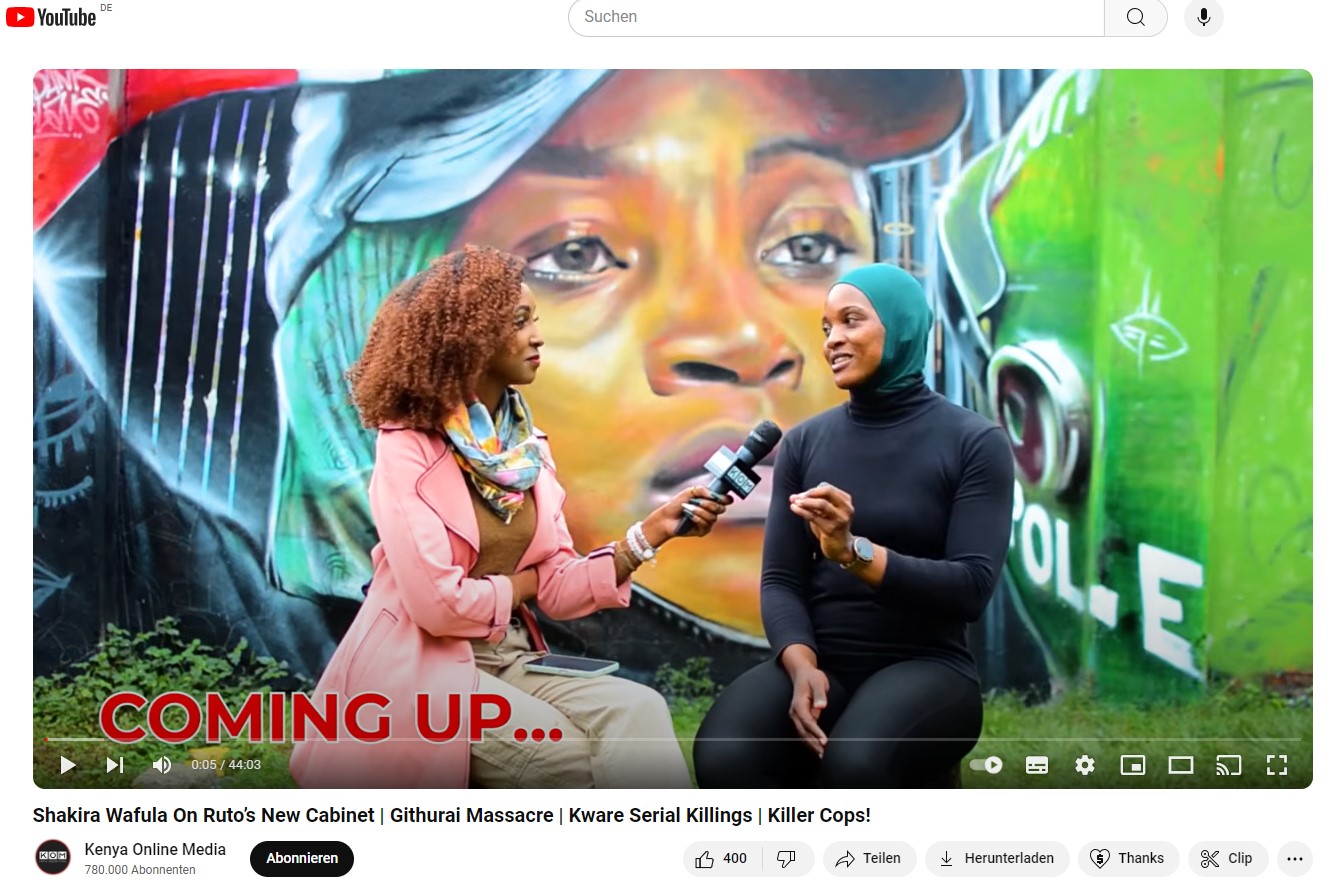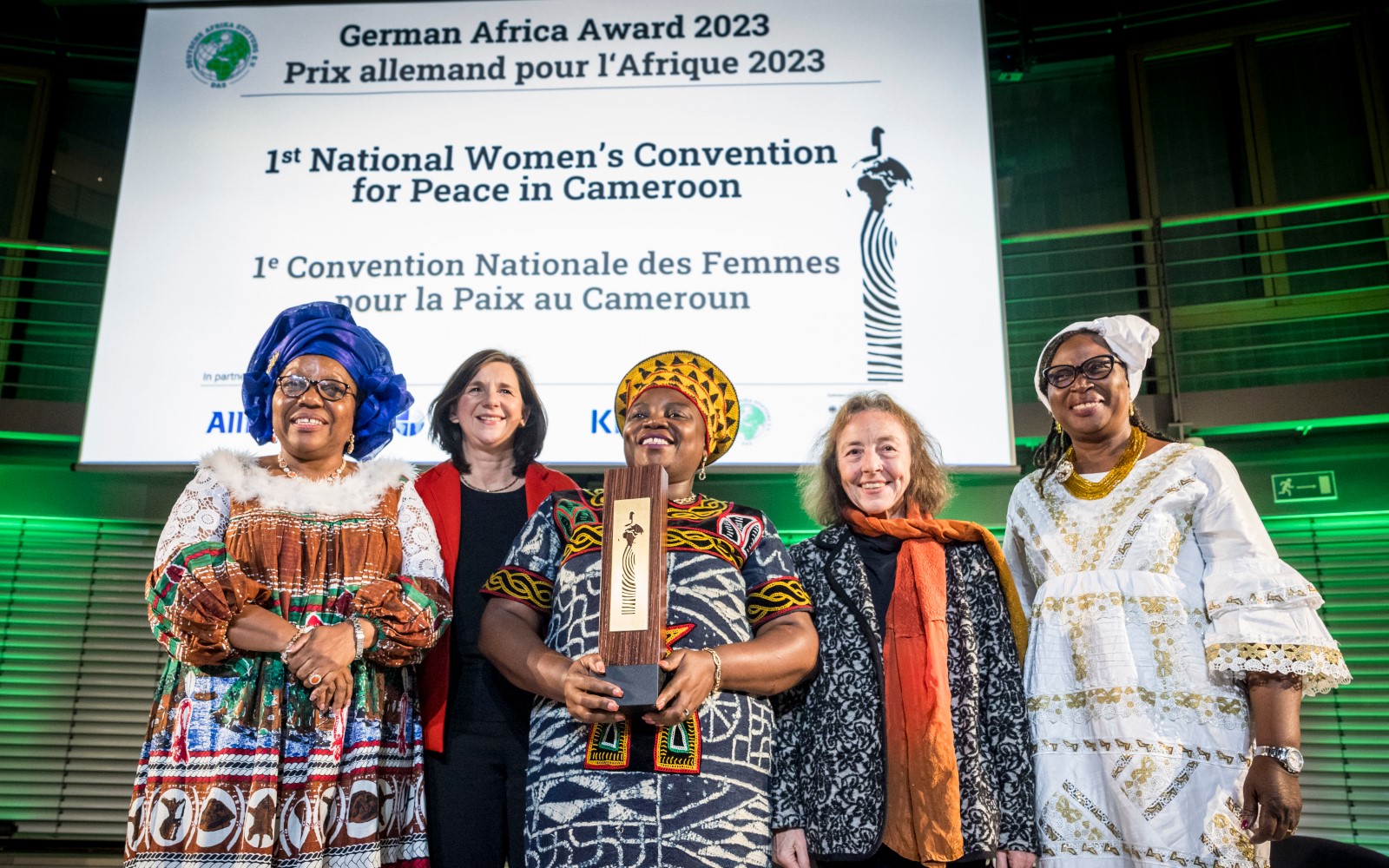Cross-border feminism
African women on the rise
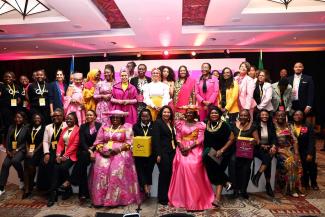
In early November 2024, Simi Olusola passed away. Three years ago, while pregnant with her son, Simi ran for State House of Assembly in Ekiti State, Nigeria, but did not win. A few months following the elections, she was diagnosed with breast cancer and was undergoing chemotherapy. Unhappy with setbacks in governance and women’s rights in Nigeria, she was working on her 2027 election campaign while enduring her pain. Determined to share her experience she encouraged young mothers to run for politics and called on institutions to support them. She passed on at 34 years.
Simi embodies the feminist movement in Nigeria that showed us, in the past decade, the courage of young women who dare to lead. When 276 Chibok schoolgirls were kidnapped from their classes in 2014, for example, it sparked the Bring Back Our Girls movement, which brought attention to the plight of girls’ education. “Injustice to anyone anywhere is injustice to everyone everywhere,“ says Aisha Yesufu, co-founder of the movement. While 82 Chibok girls were still in captivity in 2024 according to the human-rights organisation Amnesty International, many of them managed to flee or have been rescued. The movement succeeded in both saving many girls and centring education as fundamental to society’s progress.
Women’s movements in Nigeria and Kenya
Feminist movements in Nigeria have increasingly become intersectional – they cut through different issues and social identities such as class, sexuality, religion, age or ethnic groups. They are rooted in governance questions and are challenging the status quo. Sit-ins and protests have been part of the DNA of the student movements in the 1980s and early 1990s which were directed against military dictatorship and school closures in Nigeria. However, millennials brought feminist victories with their ability to unite people along and beyond ethnic lines, ideologies and colonial borders.
In 2020, for example, a series of mass peaceful protests called for the complete disbandment of the Special Anti-Robbery Squad (SARS), a Nigerian police unit with a history of abuse of power. The Feminist Coalition (FemCo), a small alliance of young Nigerian feminists, managed to set up a network of lawyers, provide food, medical support and more for the predominantly young protesters. FemCo showed that when women organise, it is for the entire society, not just for women’s rights. “If we lose this SARS fight, women will still be the biggest losers,” said co-founder Odunayo Eweniyi. The movement indeed succeeded to end SARS. Equally important, FemCo opened up feminist conversations in a Nigeria that had long regarded the word “feminist” as an insult.
Similarly, Gen Z in Kenya showed us in the past few months the power of a united voice. In January 2024, Kenyan women took to the streets in the largest event ever held in the country against sexual and gender-based violence. The movement called for President Ruto to declare femicide a national crisis. Later in 2024, however, at least 97 women were killed within three months. Even though the Kenyan feminist movement has not yet achieved its ultimate demand, it urged the Kenyan government and other actors to take femicide seriously.
The issue remains pressing. According to the United Nations, almost 85,000 women and girls globally were intentionally killed in 2023, with Africa accounting for the highest number of victims of intimate partner/family member femicide relative to the size of its population (2.9 per 100,000; UN Women 2024). The home is the most dangerous place for women.
New ways of transnational activism
A common denominator among feminist victories led by Millennials and Gen Z is digital activism, encompassing
- planned and digitally mobilised nationwide protests,
- facilitating real-time updates,
- countering misinformation and exposing abuses as well as
- crowdfunding for activists’ legal aid.
New tools include direct messages on Instagram, WhatsApp groups, Telegram communities, hashtags, X space debates, TikTok lives and Snapchat conversations which are deleted after 24 hours. State and non-state institutions are forced to confront this digitally-savvy and highly organised force. The digital has become the tool and the battlefield.
One of the new ways of activism is being your own activist every day and exposing inequality by sharing your story. Women share their divorce and fight for children’s custody live on Facebook. They call out the bride price in their Instagram stories or talk about walking out of abusive marriages. Patriarchy rewards women for silence, so the struggle is a struggle for voice.
These new ways of activism also fostered a ripple effect: African feminist movements have sparked action worldwide. For instance, the Gen Z protests in Kenya have spread to Uganda, Nigeria and Mozambique.
Women in leadership positions
As much as patriarchy is gatekeeping leadership roles, especially by telling young women they are “too young to lead”, an unapologetic generation of women who dare to lead is rising. They include:
- Bogolo Joy Kenewendo, Minister of Minerals and Energy of Botswana,
- Emma Theofelus, Minister of Information and Communication Technology of Namibia,
- Filsan Abdullahi Ahmed, former Minister of Women, Children and Youth in Ethiopia,
- Jaha Dukureh, a Gambian women’s rights activist who declared herself a candidate for 2021 President of the Gambia and
- Jokate Mwegelo, Secretary General Youth Wing of the Tanzanian party CCM – to mention a few.
This rise is backed by an intergenerational movement rallying to open the doors for more women in leadership. The feminist movements have successfully advocated for increased political representation, and women are taking charge. Despite being the first or youngest, these women leaders refuse to confine to the patriarchal norms. Many come from activism, and they deliver in public service with the conviction of opening doors for more women to lead.
They are not only speaking on gender equality but also challenge electoral malpractices, bad governance, corruption and tax hikes. A common trend among young women leaders is to head charities that support and mentor girls because they know first-hand the challenges that await in leadership and are ready to overcome generational gatekeeping.
Activism has resulted in multiple progressive bills on the continent. One example is the Affirmative Action (Gender Equality) Act 2024 in Ghana, which is the result of several activists lobbying for over a decade. The law in its current form makes it compulsory to have women either elected or appointed to major decision-making organs of public life. Morocco’s new family code Moudawana is another feminist win of the decade. The reform could provide more freedom and protection for women on issues such as child marriage, inheritance, divorce and guardianship.
Progress is visible in women in leadership. According to the IPU Parline Monthly ranking of women in national parliaments (lower or single house), Rwanda leads the statistics with 63.8 % and South Africa follows in 16th place (44.7 %), while Germany ranks 47th (35.3 %) and the US 74th (28.7 %). The recent elections of the first female president of Namibia, Netumbo Nandi-Ndaitwah and the first female Vice President of Ghana, Jane Naana Opoku-Agyemang are a momentum for more elected roles for women.
Remembering the 1995 Beijing Declaration
This year marks the 30th anniversary of the 1995 Beijing Declaration and Platform for Action, which according to the UN is considered the most progressive blueprint ever for advancing women’s rights. African women contributed significantly to its creation at the Fourth UN World Conference on Women in Beijing. They demanded an end to gender-based violence and inequality in the workplace. Moreover, they advocated for sexual and reproductive health and for women to occupy leadership positions. One of them was Gertrude Mongella of Tanzania, the Secretary-General of the UN World Conference.
While the women’s movement gets stronger, there are also growing campaigns against the movement, backlash, shrinking spaces and a weakening of civil society. Women activists and human-rights defenders in countries like Zimbabwe, Sudan and Uganda continue to face repression and violence for their advocacy work. They often experience intimidation, arrests, physical assaults and even targeted killings. For instance, in Zimbabwe, activist and opposition politician Joana Mamombe was arrested multiple times and tortured for her outspoken political voice.
We see efforts to roll back progressive legislation, limit reproductive rights and undermine women’s participation in decision-making processes. One case in point is the attempt to lift the ban on genital mutilation in the Gambia. The country’s National Assembly upheld the ban, however.
The feminist movement stands firm to provide a better future for girls. Looking ahead to more feminist wins, a focus on a united front against the backlash would be key. In the late 1990s, feminism was regarded as a bad word and feminists were depicted as nasty, ugly women with a moustache who hated all men. Some of the stereotypes are still maintained but the young feminist movement is bold and unapologetic about “smashing the patriarchy”. Young African women simply won’t give up their rights – they will fight.
Links
UN Women, 2024: Femicides in 2023: Global estimates of intimate partner/family member femicides.
https://www.unwomen.org/en/digital-library/publications/2024/11/femicides-in-2023-global-estimates-of-intimate-partner-family-member-femicides
Aya Chebbi is a Pan-African Feminist and founder of Nalafem, a collective of women politicians and activists committed to the liberation of African women and girls.
hello@ayachebbi.com
http://ayachebbi.com
